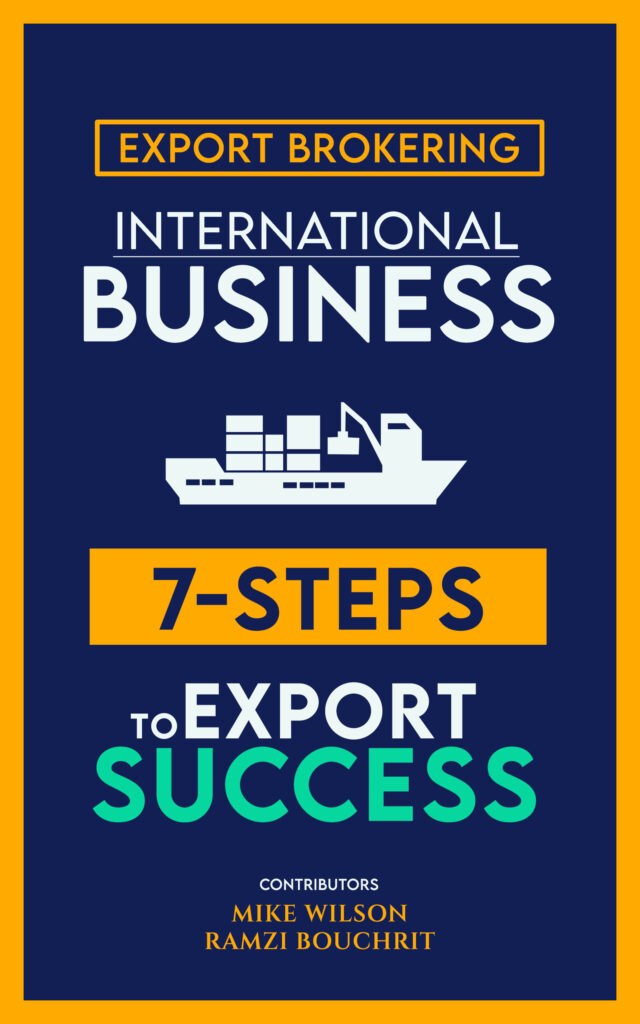Understanding Trade Financing Options for International Trade Brokers, learn more in the below article!
Table of Content
| Introduction |
| Overview of Trade Financing for International Trade Brokers |
| 1. Importance of Trade Financing |
| 2. Common Trade Financing Options |
| Factoring and Invoice Financing |
| 1. Definition and Function |
| 2. Pros and Cons |
| Letters of Credit |
| 1. Definition and Function |
| 2. Pros and Cons |
| Supply Chain Finance |
| 1. Definition and Function |
| 2. Pros and Cons |
| Export Credit Insurance |
| 1. Definition and Function |
| 2. Pros and Cons |
| Conclusion |
| FAQs |
Introduction of Understanding Trade Financing Options for International Trade Brokers
Trade financing plays a crucial role in the success of international trade brokers. This article provides an overview of trade financing options available to brokers and explores their importance in facilitating smooth and profitable transactions. By understanding the various trade financing options, brokers can make informed decisions that benefit their clients and support their business growth.
In this step of “The Export Series” we will show you how to become a successful Import Export (International Trade) broker.

Mr. Ramzi Bouchrit (RB JV Group) has provided us with helpful information based on the different transactions in the field of the International Trade aka import export. “The Export Series”. All what’s provided here comes from real life examples and recommendations based on either what Ramzi Bouchrit has personally done and practiced or one of his business partners (in the International Trade) has.
Overview of Trade Financing for International Trade Brokers
1. Importance of Trade Financing
Trade financing is essential for international trade brokers as it provides the necessary capital to facilitate transactions. It allows brokers to bridge the gap between receiving payments from buyers and paying suppliers, ensuring a steady cash flow and minimizing financial risks.
2. Common Trade Financing Options
There are several trade financing options available to international trade brokers. Understanding these options can help brokers choose the most suitable solution for their clients' needs. The following are the most common trade financing options:
Factoring and Invoice Financing
1. Definition and Function
Factoring and invoice financing involve selling invoices or accounts receivable to a third-party financial institution at a discounted rate. This allows brokers to access immediate funds based on the value of the invoices, enabling them to cover expenses or reinvest in their business.
2. Pros and Cons
Factoring and invoice financing offer advantages such as improved cash flow, reduced credit risk, and flexibility. However, brokers should consider factors such as the cost of financing, potential loss of control over collections, and the impact on client relationships.
Letters of Credit
1. Definition and Function
Letters of credit are a common trade financing instrument that guarantees payment to suppliers upon the fulfillment of specified conditions. They provide assurance to both buyers and sellers, reducing the risk of non-payment and facilitating international trade transactions.
2. Pros and Cons
Letters of credit offer benefits such as increased trust, reduced payment risks, and improved negotiation leverage. However, brokers should be aware of the associated costs, complexity, and strict compliance requirements.
Supply Chain Finance
1. Definition and Function
Supply chain finance focuses on optimizing cash flow along the supply chain by providing financing options to buyers, suppliers, and intermediaries. It allows brokers to extend payment terms to their clients, improve working capital, and enhance overall supply chain efficiency.
2. Pros and Cons
Supply chain finance offers advantages such as improved cash flow management, increased collaboration, and reduced financing costs. However, brokers should carefully evaluate the impact on supplier relationships and consider the complexity of implementing supply chain finance programs.
Export Credit Insurance
1. Definition and Function
Export credit insurance provides protection against non-payment by buyers, political risks, and commercial risks associated with international trade. It gives brokers confidence in extending credit terms to their clients and helps mitigate potential financial losses.
2. Pros and Cons
Export credit insurance offers benefits such as risk mitigation, enhanced credit management, and improved access to
financing. However, brokers should consider factors such as premium costs, coverage limitations, and the need for thorough due diligence.
Conclusion Understanding Trade Financing Options for International Trade Brokers
Understanding trade financing options is essential for international trade brokers. By familiarizing themselves with the importance and benefits of trade financing, as well as the specific features and considerations of common options such as factoring and invoice financing, letters of credit, supply chain finance, and export credit insurance, brokers can effectively support their clients' financial needs and ensure successful trade transactions.
FAQs
Q1: What is the importance of trade financing for international trade brokers?
A1: Trade financing is important for international trade brokers as it provides the necessary capital to bridge the gap between receiving payments from buyers and paying suppliers, ensuring a steady cash flow and minimizing financial risks.
Q2: What are some common trade financing options for international trade brokers?
A2: Common trade financing options for international trade brokers include factoring and invoice financing, letters of credit, supply chain finance, and export credit insurance.
Q3: What is factoring and invoice financing?
A3: Factoring and invoice financing involve selling invoices or accounts receivable to a third-party financial institution at a discounted rate, providing immediate funds based on the value of the invoices.
Q4: What are the pros and cons of letters of credit?
A4: Letters of credit offer benefits such as increased trust, reduced payment risks, and improved negotiation leverage. However, they come with costs, complexity, and strict compliance requirements.
Q5: How does supply chain finance benefit international trade brokers?
A5: Supply chain finance improves cash flow management, enhances collaboration, and reduces financing costs for international trade brokers. However, it requires careful evaluation of supplier relationships and implementation complexities.
To know how to do the international trade transactions the right way, you can get in touch with us using the below contact details:
Email: export@ramzisite.info
Phone: +1 424 208 0297
WhatsApp: https://wa.me/+14242080297
Website: https://ramzisite.info
To get more real life examples of successful Export transactions in a step by step manner, please visit our Amazon Book (Mike Wilson & Ramzi Bouchrit), 7 Steps to Export Success: https://amazon.com/dp/B0B35HG9PC





